Darren Hayman - Interview
by Benjamin Howarth
published: 11 / 1 / 2009
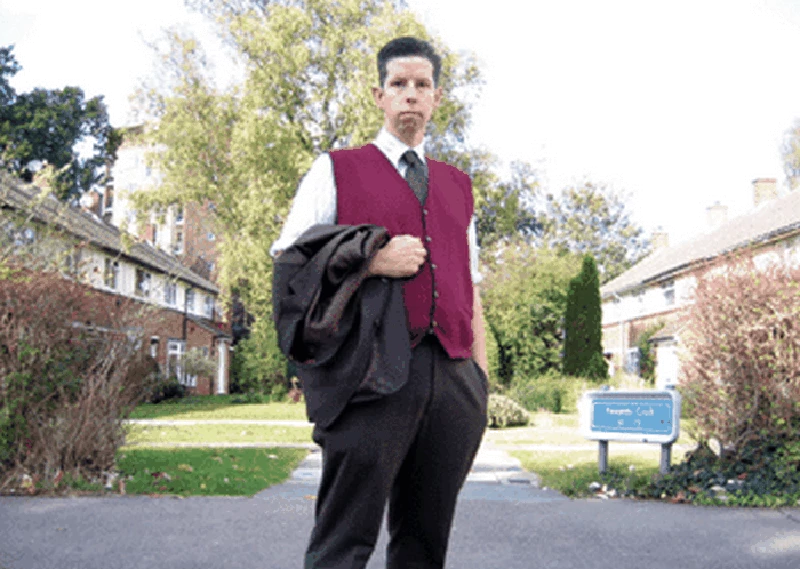
intro
The former front man with Hefner, Darren Hayman has just released his tenth album, 'Pram Town', a set of songs all set in the new town of Harlow in Essex. In what is our fifth interview with him, he speaks to Ben Howarth about it and his love of song writing
The ever prolific Darren Hayman and former Hefner front man has just released ‘Pram Town’, his second album with his backing band, the Secondary Modern and the tenth of his career in total. For those few of you who don’t know Hefner, they were once ‘Britain’s biggest small band‘, having earned the rapt devotion of the listeners of the John Peel radio show, for whom they recorded a total of twelve sessions. At the height of their period being oh-so-nearly famous, in 1999, five Hefner songs were included in the annual Festive 50 run down of Peel listener’s favourite songs of the year. Hefner disbanded amicably in 2002, and Darren and Hefner bassist John Morrison formed an electronic outfit, the French. Although I’ve come to think of this as some of the best of music he has made, it didn’t get the attention accorded to his old band, and in 2005, Darren returned to his guitars and began a solo career. After ‘Table For One', he formed the Secondary Modern to support him on a second solo album, 'Darren Hayman and the Secondary Modern', released in November 2007. Last year, he also released a compilation of songs recorded on holiday across the UK (‘Great British Holiday EPs‘) and also released a well-received album of bluegrass and folk songs with Hayman, Watkins, Trout and Lee. I met Darren near his home in Walthamstow in east London, where he was taking his dog Beulah for a walk. He was happy to find that the pub nearest his house, now under new management, was now serving guest ales and had a good selection of music playing. I began by asking for his thoughts on the new album. DH : Its called 'Pram Town', and it is released at the end of January. It is named after a nickname that was given to Harlow in Essex in the early 1950s. Its not supposed to be mocking, although I guess it does have a slight double-edge to it. But the compliment was meant in the sense that there was an abundance of young families in the town, and they even began to use it as a slogan, ‘Come to Pram Town’. I’ve written the album about four characters in Harlow Newtown. Some of the songs are actually about the town, which was pretty hard to write about actually. There is a song about a motorway for example. But most of the songs follow the story of these characters, and take place in the town. Everywhere is strange when you look hard enough, Walthamstow is strange when you get to know it. But Harlow really is strange. It is odd. PB : It’s not actually the town where you grew up, is it? DH : No, not quite, but its very near to it. The plans for this album did change. Initially it was going to be purely about my home town, but as I began to write songs about that, and about Essex, I was becoming increasingly interested in Harlow. So I decided to incorporate these two things into one project. PB: Did the story songs start separately from the songs about the town, then, and get merged into this album later ? DH : (Pauses). Yeah, but the change did happen quite early. There were two or three songs that had to be changed slightly to fit the Harlow concept. But most of these songs were written directly to the concept of an album about Harlow. That is mostly how I work. It is pretty unusual for me to write a song without already having a title for the album decided. However, the title for this album did change - it was initially going to be called ‘The White Town’, but I was persuaded that might be a bit too contentious. I still stand by that though. I don’t think I have ever seen a black person in Harlow. PB : That’s exactly like Maidstone (where I grew up, and where Darren went to art college - PB). I think there might have been one black person in the whole of my school. Given that you had begun the album with such a clear concept, did it end up as you had imagined it would at the beginning? DH : No, mainly because of the research. I really enjoyed that. I think this will be an important album for me and how I do things. I have often pretended that my albums were concept albums, I went around saying that ‘We Love The City’ was a concept album, but I’m not sure how true that really was. But here, although I didn’t use every part of the research directly, it gave me a background of information for every song. PB : There are songs on the album that could stand on their own, but taken in the context of the other songs on the album, clearly have more meaning. DH: Yeah, for instance there is the bridge where I say that the couple met on a train, and on an earlier song there is the train where they did meet. You put these little things in so that people get it. Sometimes these things can be quite difficult. For example, Pete Townsend I don’t think is very good at that. It doesn’t work on 'Tommy', when there is that kind of exposition in songs- (sings) “TO-MMY goes into the room, sits on the chair“... So, I had to change some of the details. At one point, the album had been written from multiple perspectives, and then I realised that it had to come from one perspective, so that the ‘I’ in each song was always the same person. I wanted to make sure that there were little details, such as that train, that tied the album together, but without the exposition. It was important that each song could be a song, and didn’t need to be part of the album to work. Once or twice, I suppose, it doesn’t quite work. There are one or two songs that are just part of the story, are just for the album and don’t have a context outside of it. PB : I also noticed a slight shift in the tone of the way that you wrote songs. I thought, for example, with the song about the local girl band, ‘Amy and Rachel’ that on earlier albums you might have opted to take the mick a bit more. But there is an affectionate tone, even when some of the subject matter is a bit ridiculous. DH : That’s nice, I’m glad that you think that. I have been trying to make it clear in press releases and my interviews that the title was affectionate. I think it is true that I have changed my approach a bit - I think it began when I did a series of EPs about British holiday towns. On those the targets were almost too easy. It would have been a little bit cheap. But having said that, Harlow is a bit shit and some of the characters there are a bit daft. So I wouldn’t say that I never make judgements in the song, but I have made an attempt to be a bit more affectionate towards it. Doing that on the next album will be even harder. I may even do three albums about Essex, but the next album definitely will be, and it is going to be about ruffians - people that go dog fighting and dogging, etc. I also want to find an affectionate tone in that “bad people do fall in love“. PB : When I last interviewed you, the first Secondary Modern album had just been released, and you were already working on what became 'Pram Town'. Now, even before 'Pram Town' has been released, you are planning another one. DH : That often seems to happen. I seem to always end up giving interviews that are meant to be about one album, and end up being almost completely about the next one. PB : Is that strange? You finished this album a while back now, and, by the time you come to promote it, you are really thinking about the next one. DH : I don’t really understand many other people who write songs at all, really. That’s not to say that I think I am really original - I think some of my concepts are original, but they are all just verse songs with guitars and pianos. But I find how other songwriters write their songs very weird. I don’t know how some people can write all the songs for an album, and then stop. I can’t stop writing songs any more than I can stop watching TV or listening to music. I don’t understand how that switch can be turned on and off. Sometimes, it is off involuntarily and I can’t write a song, but as long as I can write I song then I will. My songs are often like dominoes, and that is why I write lots of songs that are on a theme. That has been happening since I made ‘Local Information’, really. There has been an obvious chain of songs that have lead me to this album, and then on to the next one. I read an interview with the Pogues recently. They were talking about the fact that they had reformed, and they said that they didn’t see the point in doing new songs. I thought, ‘the point is that you are alive, and you are going to die. Why not write new songs?’ I think their idea was that the Pogues had such a high benchmark that they didn’t want to spoil it, although I think that in itself is debatable. That didn’t stop them trashing over their legacy for their last three or four albums! But I still thought that was a strange thing to say. Maybe they don’t want to or don’t like each other, but I can’t understand the idea that there is no point. For me, the only real point to being alive that I have discovered is writing songs. PB : When I spoke to you last, you said, I think reasonably, that you much prefer to perform your recent songs to the old Hefner songs. But you have spent the last year performing entire shows of Hefner songs at shows with your old bandmate Jack Hayter. DH : I probably had in mind that those shows were going to happen. I had begun to plan those shows in January and February last year. It was hard, as those shows went on, to perform some of the Hefner songs. However, I always had fun. I wouldn’t have wanted to do them if they hadn’t been fun, I need to enjoy being on stage. Recently, I have found quite a good way around it. I have started to sing some of the more obscure Hefner songs, some of the B-sides and the less well known tracks. That’s fine. PB : It is probably what a lot of the people at the shows probably want to hear anyway. DH: Yeah, and it’s like doing a new song in many ways. I had to learn the songs again myself, which was really fun. That makes it really sweet for everyone, myself and the audience. I think it is right to have a break from songs like ‘The Hymn For The Cigarettes’ and ‘Hello Kitten’ for a while. There are also a couple of Hefner songs that I really don’t mind, which I feel I could do forever more. ‘The Greedy Ugly People’ is one, and also another song from the same album, 'We Love the City' called ‘Don’t Go’. That never seems to get old to me, whereas ‘The Hymn For The Cigarettes’ just seems to get more and more stupid, the more I play it. It doesn’t even seem like a song, just a chant. PB: Turning back to the ‘Pram Town’ album, the other major difference between that and the other Secondary Modern records has been the amount of other people playing with you. This album has quite a supporting cast. DH : That came out of the period when I played bass with Ellis Island Sound. Pete Astor (formerly of the Loft and the Weather Prophets - PB) and Dave Shepherd, who is now the drummer in the Secondary Modern, had done this very folky album, which I suppose is almost a cousin to ‘Pram Town’. I’m not on it, but people who like my album might like it. It is called ‘The Good Seed’. They then formed a large band of 13 people, which was really great and played through the summer. But Dave and Pete decided that they would not use that band for recordings, which was fine. But I was a bit disappointed, just because I thought that it sounded great. So I decided that I would use that band on my album, so a lot of those names, if there are any you are unfamiliar with, are those guys from Ellis Island Sound. I guess that the Secondary Modern is becoming a loose collective. There are people that were on both albums. So that is good, especially the brass section - which I hadn’t used since I was in Hefner. I didn’t have to arrange all the parts - people were able to come in and give the songs what they needed. PB : I’ve had the album a while now, one of the little perks of being a reviewer, and I must say that I’m really enjoying it. It’s certainly the best of the solo albums. DH : I think it probably is. Actually Dave Tattersall, of the Wave Pictures, was at my house recently, and he asked me to put all ten of the albums that I have made in order. I think I decided ‘Pram Town’ was third, and that means that in time it may have the potential to be first, as I have only just made it. I certainly think it is better than the last couple, and certainly better than a few of the Hefner albums. There are some songs that I really like on ‘Pram Town’, although it’s a much quieter album. There had been some songs that just seemed catchy because you have repeated the same words four times, such as (early Hefner single) ‘Pull Yourself Together’. I am trying to do that a little less, and this is one of the first albums where I have tried to sustain a mood. Sometimes albums are a bit like writing a CV and you try and show everything you can do. On this album I wanted to sustain one approach, and one of the ways I did that was to ban electric guitars - I wanted to make it folky. But also… (pause) sorry, I’ve just been distracted by the good song on the jukebox. It’s a Ronnie Lane song, but the Faces version with Rod Stewart singing. Anyway, yeah, there was one song, ‘Fire Stairs’, where I was trying to make a rock song without an electric guitar. I wanted it to be almost so that you don’t notice the lack of electric guitar. Tricks like that are supposed to be the fifth or sixth layer to an album, things you might notice if you listen to it for a year. PB : What are your immediate plans following the release this of this album? DH : Well, I think I’m not going to play live very much. I think I just want to make the next album. ‘Pram Town’ seems to have already got lots of reviews, which is nice, certainly more than the last one, and they seem not to just say the same things that they are always say, which is very good. Just in a small way, I think I may be starting to be re-evaluated, slightly. That is really good for my confidence, and its really good for the next album, which I think will be like ‘Pram Town’ but even more so. It will be even more acoustic, even more conceptual, slower, more miserable… its like the whole thing is grounding to a halt! The next album will be called ‘Essex Arms’, and it is going to be a very depressing record. There are three songs about the same car crash, and a strong theme of death. PB : Finally, the other thing that I wanted to ask about was the ongoing Hefner reissues programme. There have been expanded editions of the first two albums, 'Breaking God's Heart' and 'The Fidelity Wars', as well as rarities compilation. Are you planning to finish these? DH: I just keep forgetting about it! Although, I actually think they are getting better - the ‘We Love The City’ reissue has some quite interesting remixes, and there are also genuinely different versions of almost every song. The reissue of the French’s album will also be good, because there are lots of songs that we recorded which were never actually released, so they will be on that album. It’s good to do this, and it's good money. They are a good part of my living now. I don’t have to feel guilty about saying that, because they are my records. PB : Thank you.
Band Links:-
https://www.facebook.com/pages/Darren-Hayman/55543614047http://www.hefnet.com/
Picture Gallery:-
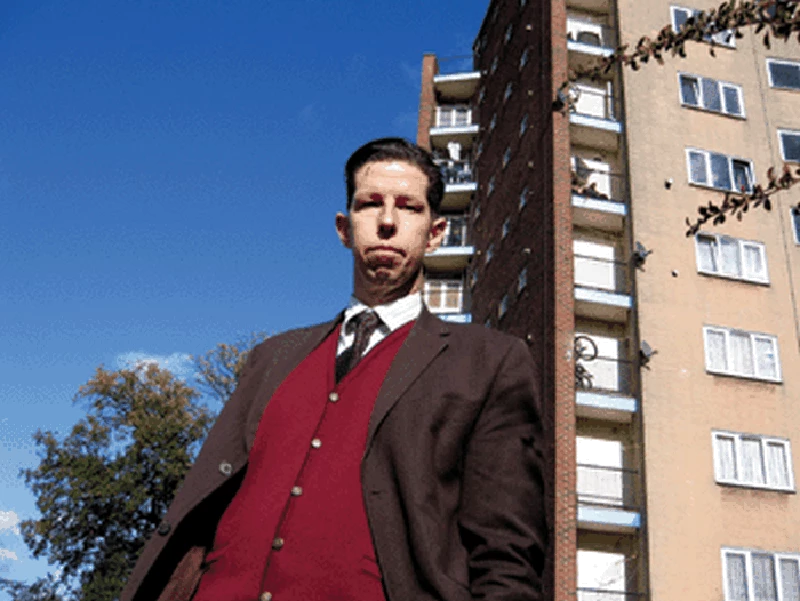
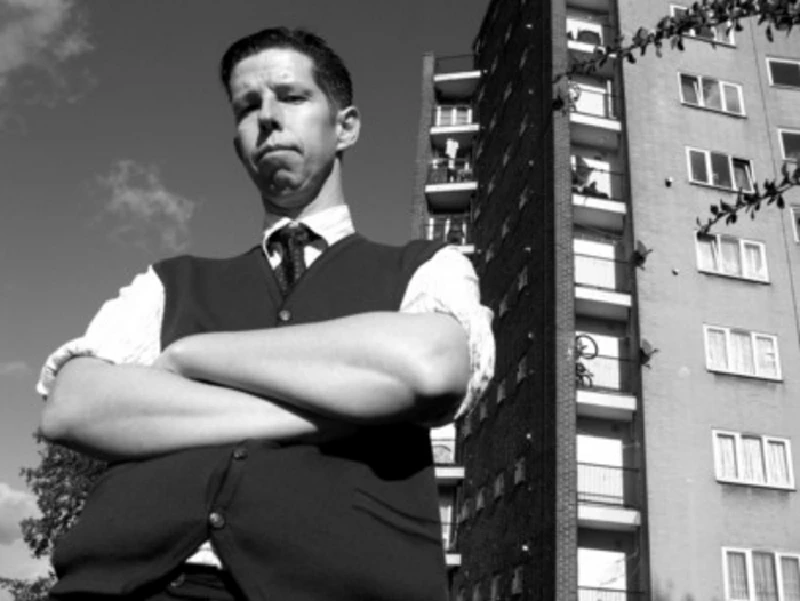
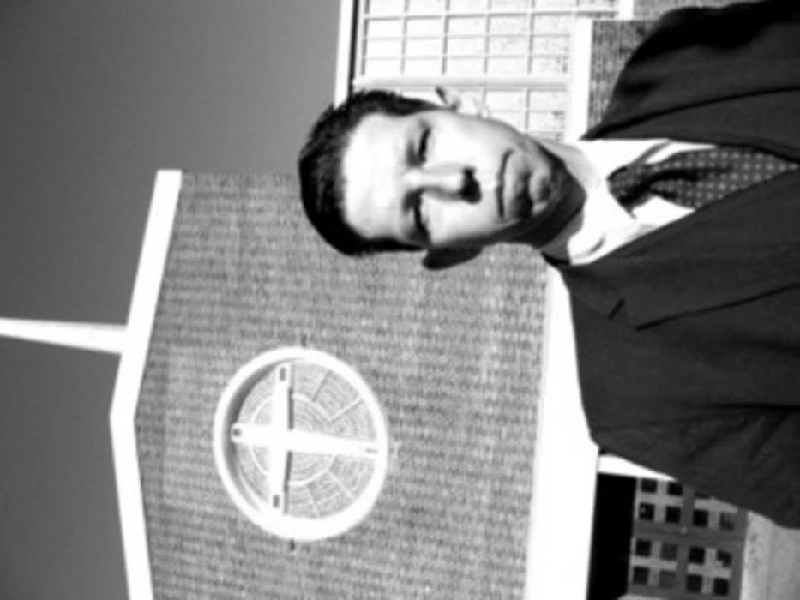
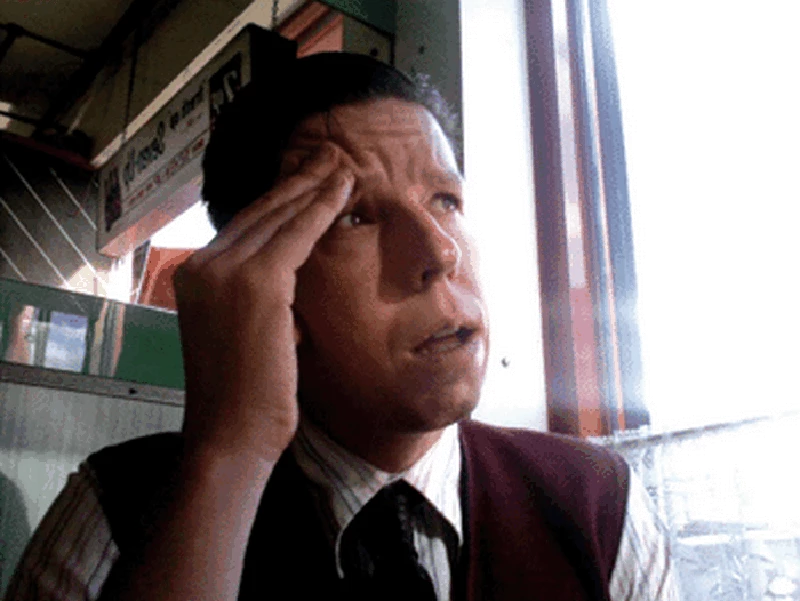
interviews |
|
Interview (2020) |
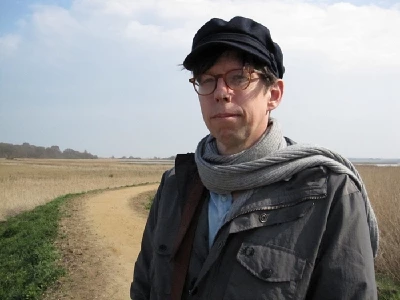
|
| As he prepared for the release of 'Home Time', his 17th album, Darren Hayman speaks to Ben Howarth about his most personal album and his reflections on the end of his epic, award-winning 'Thankful Villages' project. |
| Interview (2012) |
| Interview (2007) |
live reviews |
|
Brudenell, Leeds, 24/6/2011 |
| Helen Tipping enjoys a night of acoustic rock and razor sharp humour from former Hefner front man Darren Hayman at a solo show at the Brudenell in Leeds |
| Camden Head and Bush Hall, London, 19/10/2010...23/11/2010 |
| Lexington, London, 5/3/2009 |
| Luminaire, London, 30/3/2008 |
| Luminaire, London, 12/11/2007 |
features |
|
Ten Songs That Made Me Love... (2014) |
| In 'Ten Songs that Made Me Love...', Ben Howarth writes of his favourite songs by singer-songwriter and ex-Hefner front man, Darren Hayman |
soundcloud
reviews |
|
12 Astronauts (2019) |

|
| New collection of songs by Darren Hayman celebrates the 50th anniversary of the Moon landings by sharing a very personal perspective of the twelve men who have walked on the moon |
| Thankful Villages Volume 3 (2018) |
| Thankful Villages Volume 1 (2016) |
| Florence (2015) |
| Chants for Socialists (2015) |
| January Songs (2012) |
| The Ship's Piano (2011) |
| Great British Holiday EPs (2008) |
most viewed articles
current edition
Carl Ewens - David Bowie 1964 to 1982 On Track: Every Album, Every SongArmory Show - Interview with Richard Jobson
John McKay - Interview
Colin Blunstone - Thalia Hall, Chicago, 16/7/2025
Billie Eilish - O2 Arena, London, 10/7/2025
Bathers - Photoscapes 1
Visor Fest - Valencia, Spain, 26/9/2025...27/9/2025
Loft - Interview
Sir Tim Rice - Interview
Robert Forster - Interview
previous editions
Manic Street Preachers - (Gig of a Lifetime) Millennium Stadium, Cardiff, December 1999Heavenly - P.U.N.K. Girl EP
Beautiful South - Ten Songs That Made Me Love...
Oasis - Oasis, Earl's Court, London, 1995
Peter Perrett - In Dreams Begin Responsibilities Interview Part One
Boomtown Rats - Ten Songs That Made Me Love....
Coldplay - Wembley Arena. London, 16/8/2022
Prolapse - Interview
Pixies - Ten Songs That Made Me Love...
Trudie Myerscough-Harris - Interview
most viewed reviews
current edition
Davey Woodward - Mumbo in the JumboSick Man of Europe - The Sick Man of Europe
Lucy Spraggan - Other Sides of the Moon
Amy Macdonald - Is This What You've Been Waiting For?
Phew, Erika Kobayashi,, Dieter Moebius - Radium Girls
Bush - I Beat Loneliness
Suzanne Vega - Flying With Angels
Alice Cooper - The Revenge of Alice Cooper
Blueboy - 2
Cynthia Erivo - I Forgive You
Pennyblackmusic Regular Contributors
Adrian Janes
Amanda J. Window
Andrew Twambley
Anthony Dhanendran
Benjamin Howarth
Cila Warncke
Daniel Cressey
Darren Aston
Dastardly
Dave Goodwin
Denzil Watson
Dominic B. Simpson
Eoghan Lyng
Fiona Hutchings
Harry Sherriff
Helen Tipping
Jamie Rowland
John Clarkson
Julie Cruickshank
Kimberly Bright
Lisa Torem
Maarten Schiethart